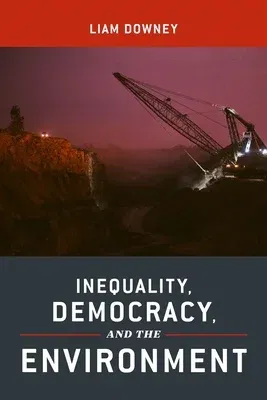Winner, American Sociological Association Section on Environment and
Technology Allan Schnaiberg Outstanding Publication Award
The world currently faces several severe social and environmental
crises, including economic under-development, widespread poverty and
hunger, lack of safe drinking water for one-sixth of the world's
population, deforestation, rapidly increasing levels of pollution and
waste, dramatic declines in soil fertility and biodiversity, and global
warming. Inequality, Democracy, and the Environment sheds light on the
structural causes of these and other social and environmental crises,
highlighting in particular the key role that elite-controlled
organizations, institutions, and networks play in creating these crises.
Liam Downey focuses on four topics--globalization, agriculture, mining,
and U.S. energy and military policy--to show how organizational and
institutional inequality and elite-controlled organizational networks
produce environmental degradation and social harm. He focuses on key
institutions like the World Bank, the International Monetary Fund, the
U.S. Military and the World Trade Organization to show how specific
policies are conceived and enacted in order to further elite goals.
Ultimately, Downey lays out a path for environmental social scientists
and environmentalists to better understand and help solve the world's
myriad social and environmental crises. Inequality, Democracy and the
Environment presents a passionate exposé of the true role inequality,
undemocratic institutions and organizational power play in harming
people and the environment.

